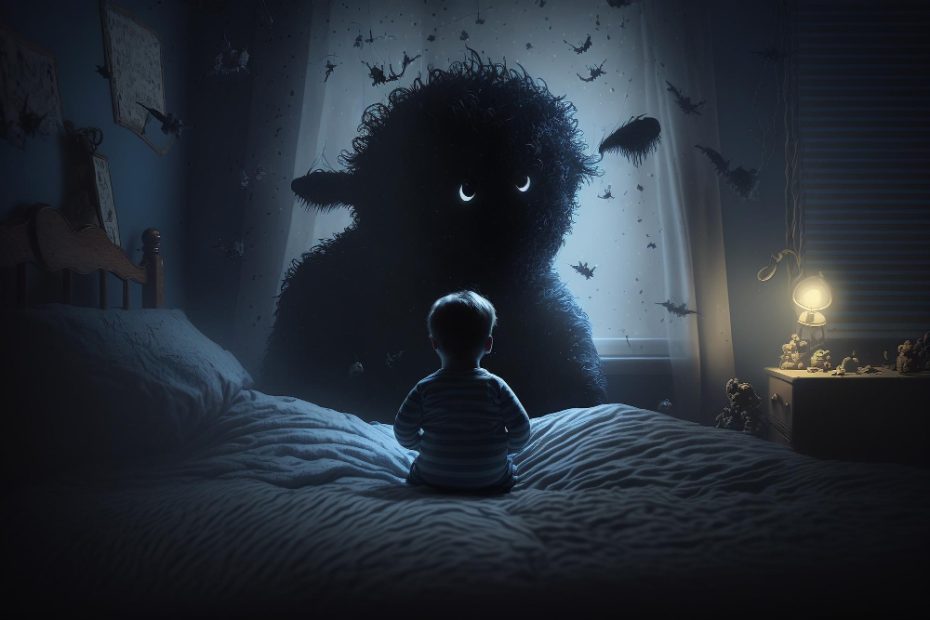Can Nightmares Cause Night Sweats?
Many of us have experienced the unsettling feeling of waking up drenched in sweat after a particularly vivid or terrifying dream. Night sweats, which are episodes of excessive sweating during sleep, are not uncommon and can be caused by various factors. One potential contributor to night sweats is nightmares. While there is a link between nightmares and night sweats, it is important to understand the underlying mechanisms and other possible causes.
The Connection Between Nightmares and Night Sweats
Nightmares are intense, disturbing dreams that often evoke strong emotions such as fear, anxiety, or sadness. They can be triggered by various factors, including stress, trauma, certain medications, or even certain foods. When we experience a nightmare, our bodies can react in different ways, including an increase in heart rate, rapid breathing, and sweating.
Night sweats are particularly common during nightmares because our body’s natural response to fear or anxiety is to activate the fight-or-flight response. This physiological reaction leads to an increase in body temperature, resulting in sweating as a means to cool down the body. In some cases, the sweating can be so severe that it wakes us up, leaving us feeling damp and uncomfortable.
“Nightmares can trigger the release of stress hormones, which can cause physical reactions such as night sweats,” says Dr. Sarah Thompson, a sleep specialist at the Sleep Center for Excellence.”
This link between nightmares and night sweats may be especially prevalent in individuals who suffer from certain sleep disorders, such as post-traumatic stress disorder (PTSD) or sleep apnea. For those with PTSD, nightmares can be a common symptom, and the associated increase in physiological responses, including night sweats, can further disrupt sleep patterns.
Other Possible Causes of Night Sweats
While nightmares can be a contributing factor to night sweats, they are not the sole cause. There are several other potential reasons why someone may experience excessive sweating during sleep:
- Hormonal changes: Hormonal imbalances, such as those experienced during menopause, can lead to night sweats.
- Infections: Certain infections, such as tuberculosis or HIV, can cause night sweats as a symptom.
- Medications: Some medications, including certain antidepressants, hormone therapies, or fever-reducing drugs, may have night sweats listed as a side effect.
- Medical conditions: Conditions such as hyperthyroidism, diabetes, or cancer can also contribute to night sweats.
If you consistently experience night sweats that are disruptive to your sleep or are accompanied by other concerning symptoms, it is important to consult a healthcare professional to determine the underlying cause.
Managing Nightmares and Night Sweats
If nightmares and subsequent night sweats are causing distress, there are strategies you can try to help manage them:
- Stress reduction techniques: Incorporating relaxation techniques into your daily routine, such as deep breathing exercises or meditation, can help alleviate stress and reduce the likelihood of nightmares.
- Sleep environment: Creating a comfortable and calming sleep environment can promote better sleep quality, reducing the chances of nightmares and associated night sweats. This can include keeping the bedroom cool and dark and establishing a consistent bedtime routine.
- Healthy lifestyle habits: Maintaining a balanced and healthy lifestyle can have a positive impact on sleep quality. Regular exercise, a nutritious diet, and avoiding substances like caffeine and alcohol close to bedtime can contribute to better overall sleep.
“If nightmares persist and significantly affect your quality of life, it may be beneficial to seek help from a mental health professional who specializes in dream therapy or post-traumatic stress disorder,” suggests Dr. Thompson.
In Conclusion
Nightmares can indeed cause night sweats due to the physiological response of our bodies to fear and anxiety. However, it is essential to consider other potential causes for night sweats, as they can also be indicative of underlying medical conditions or hormonal changes. If nightmares and night sweats significantly disrupt your sleep or overall well-being, consulting a healthcare professional is advised to determine the most appropriate course of action.
